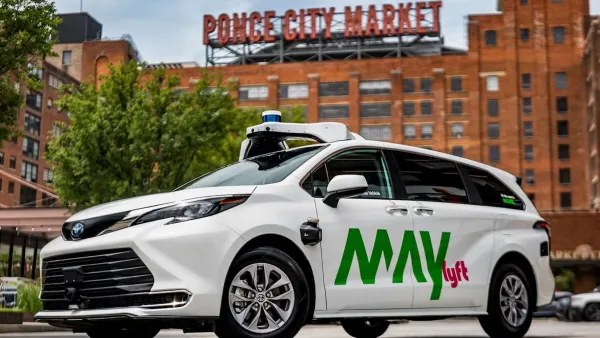California regulators approved new rules for autonomous vehicles, shifting the required human backup from behind the wheel to a remote location.

"Self-driving cars with no human backup behind the wheel will be legal on California roads for testing and transporting the public starting April 2," reports Ethan Baron. "Robot cars have been allowed on the state’s public roads for testing since September 2014, but a safety driver behind the wheel has been required."
The cars will still have a backup—a remotely located human described as a "remote operator" to monitor the car. According to a separate article by Johana Bhuiyan, remote operators "must also be able to communicate with law enforcement as well as the passengers in the event of an accident."
Bhuiyan also reports that the new rules for self-driving cars in California takes a step toward profitability for companies racing into a new market. The need for remote operators of any capacity also ensures new forms of employment to replace the jobs that will surely be lost when autonomous vehicles finally take the road at a large scale.
FULL STORY: Self-driving cars with no in-vehicle backup driver get OK for California public roads

Planetizen Federal Action Tracker
A weekly monitor of how Trump’s orders and actions are impacting planners and planning in America.

Chicago’s Ghost Rails
Just beneath the surface of the modern city lie the remnants of its expansive early 20th-century streetcar system.

Amtrak Cutting Jobs, Funding to High-Speed Rail
The agency plans to cut 10 percent of its workforce and has confirmed it will not fund new high-speed rail projects.

Ohio Forces Data Centers to Prepay for Power
Utilities are calling on states to hold data center operators responsible for new energy demands to prevent leaving consumers on the hook for their bills.

MARTA CEO Steps Down Amid Citizenship Concerns
MARTA’s board announced Thursday that its chief, who is from Canada, is resigning due to questions about his immigration status.

Silicon Valley ‘Bike Superhighway’ Awarded $14M State Grant
A Caltrans grant brings the 10-mile Central Bikeway project connecting Santa Clara and East San Jose closer to fruition.
Urban Design for Planners 1: Software Tools
This six-course series explores essential urban design concepts using open source software and equips planners with the tools they need to participate fully in the urban design process.
Planning for Universal Design
Learn the tools for implementing Universal Design in planning regulations.
Caltrans
City of Fort Worth
Mpact (founded as Rail~Volution)
City of Camden Redevelopment Agency
City of Astoria
City of Portland
City of Laramie





























